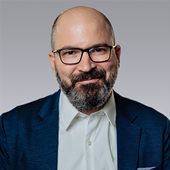It seems that volumes have been written about the Millennials (aka Gen Y, the echo boomers) on everything from what they want from the workplace to where they want to live. But one area that perhaps has garnered less attention is their impact on the healthcare industry. With the 65+ population accounting for at least $0.50 of every $1 of healthcare spending (and this is a conservative estimate), the aging baby boomers have justifiably been the focus of analyses on demand for healthcare. However, Millennials deserve attention in this area as well, given the sheer size of the group in addition to their relationship with and expectations for technology, which are unlike any generation before them.
Plus: What is the current business climate for Millennials? | Don’t fear Millennials in the workplace
There isn’t a single agreed-upon definition for who the Millennials are: Depending on who you ask, the group is either slightly smaller than, about the same size as, or slightly larger than the baby boomers. Based on the definition that Colliers International used in its 2015 U.S. Medical Office Outlook report, the Millennial cohort is comprised of those born between 1980 and 1999. This means that there are about 87 million of them, making them a larger group than the 76 million baby boomers (those born between 1946 and 1964).
Plus: Are Millennials renters by choice? | One-stop shopping for medical patients
Increasingly, healthcare providers are realizing that Millennials are simply too large and too influential, both now and through the long term, to ignore. For example, the leading edge of this age cohort is starting to have children, with some unique preferences for their maternity care, and they will make decisions for their family’s healthcare for many years to come. Providers also are realizing that technology isn’t just a nice option to provide when it comes to Millennials’ healthcare needs; it’s a requirement. Millennials are comfortable sharing personal information unlike previous generations, and they demand options for healthcare information and communications via smartphone, tablets and the like. A recent Xerox survey on electronic health records found that 18 to 34-year-olds had the highest preference for accessing their health records online.
Demand for healthcare technology from Millennials is one reason for the flood of capital targeting healthcare tech companies. Like the impact of Uber and Airbnb on the taxi and lodging industries, respectively, startups are attempting to disrupt the traditional healthcare model. Zocdoc allows patients to find healthcare providers, rate them, and book and modify appointments online and via an app. One Medical Group seeks to upend traditional primary care delivery by combining concierge-style services with technology, allowing patients to make appointments and refill prescriptions online and communicate with healthcare providers via email. Also, One Medical’s offices typically are in the types of urban live/work/play environments favored by many Millennials, in many cases in ground or second-floor retail, office and residential spaces rather than a traditional medical office building. Another example is Las Vegas-based primary care provider Turntable Health, funded by Zappos founder Tony Hsieh’s Downtown Project. Turntable Health offers patients the ability to schedule appointments electronically, reserve a space in the clinic’s health and wellness classes online, and communicate with providers via email and video chat.
As Millennials mature, their medical needs — both for themselves and their families — as well as their influence on the healthcare industry will increase. Providers that are able to meet these needs, including granting patients easy access to information via technology and offering services that are both convenient and efficient, will be best positioned to capture this large growing source of demand for healthcare.
For more analysis of major healthcare trends and their impact on the medical office and retail markets, please see Colliers’ 2015 U.S. Medical Office Outlook report.

 Colliers Insights Team
Colliers Insights Team



 Ron Zappile
Ron Zappile